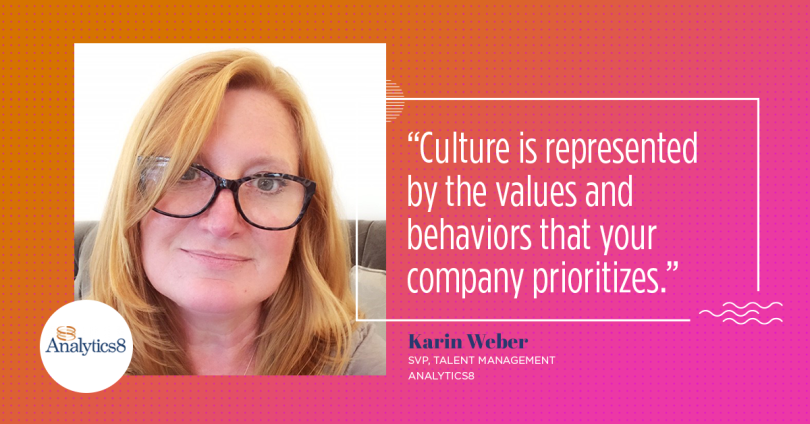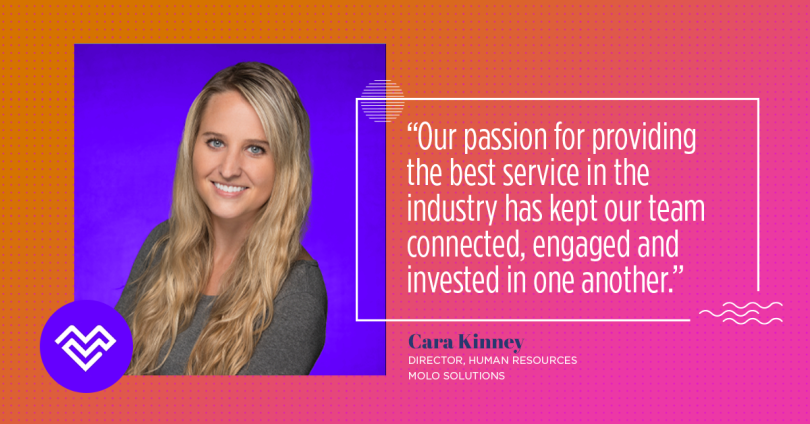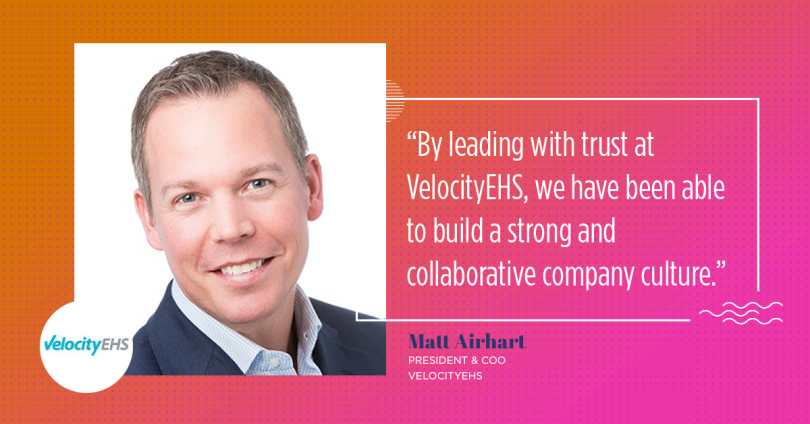
From employee happiness to a business’s bottom line, strong company culture has proven to the backbone of any successful company.
And it’s an important factor even before an employee joins a company. In fact, 81 percent of workers think company culture is important in their decision to apply for a job, according to Jobvite’s 2020 Job Seeker Nation Report. What’s more, the report also found that 38 percent of workers said they would preemptively reject potential employers due to publicly available reviews of poor company culture.
So what does it take to actually build a strong company culture? Built In Chicago connected with five local leaders to find out. They shared how being honest and authentic, leading with empathy, making decisions with intent, a passion for providing the best possible service and trusting employees to do their jobs builds a strong company culture that enables each employee to be successful in their roles.

Empathy, the Beating Heart of Good Culture
“Making empathy central to the company’s culture is crucial for its success,” Ramkumar said. “Studies have shown that empathetic workplaces often enjoy stronger collaboration, have greater morale and respond well to adversity. The desire and willingness to understand someone’s point of view, care for them and to feel what they feel builds trust and connection. As trust builds, transparency builds which makes it easier to relate to one another and have empathy for others. It is contagious. Being an empathetic leader does not mean that it takes away the ability to make tough decisions. Empathy doesn’t mean you agree, it means you understand. Approaching things empathetically ultimately brings out the best solutions.
“I’ve been fortunate to be part of a great team for many years where the leader genuinely cared about his people and wanted what’s best for them. His team always went above and beyond, gave its all, showed tremendous trust and respect for each other and thrived as a top team for many years. It’s just that feeling of ‘I know I’m heard,’ and ‘They care about me’ that always made us give more. Empathy gets to the heart of what good culture is about.”
Sujatha Ramkumar is the director of engineering and product development at Amount, which helps financial institutions digitize their personal loan operations, run fraud prevention, verify consumer claims and more.

Rooted in Honesty
“The most important characteristic of a strong company culture is authenticity,” Weber said. “Culture is not a company declaration — it’s rooted in honesty. This means culture is represented by the values and behaviors that your company prioritizes, what you stand for, what you’re good at and what happens when others aren’t looking.
“If your organizational behaviors don’t align with your core values, authenticity is in question. Does your inside match your outside? If not, your culture will suffer, making it difficult to hire and retain people long term.
“To ensure a strong company culture, figure out the positive impact you’re making on the world, what you want to be as a company and how you fit in. Consistently instill and advertise that message, both internally and externally, so that you attract people who care about what you’re doing and what you’re about. If you hire the best and brightest of those who believe in your values, building an authentic culture comes easy.
“If you’re true to who you are as an organization and earnest in your application of those core values, your culture will be strong, ring true to people and will stand the test of time.”
Karin Weber is the SVP of talent management at data and analytics consulting firm Analytics8.

Being Intentional With Decisions
“A truly strong company culture is an intentional one,” Kress said. “Many companies approach culture with a ‘set it and forget it’ mentality — they throw some perks and benefits at employees and call it a day. Don’t fall into that trap! Perks and benefits are important, there’s no doubt about that, but relying on those alone isn’t enough. Culture is a living, breathing thing and must be nurtured intentionally like any other successful relationship in your life.
“At Smokeball, we believe that our culture is just as important as our product and we make intentional decisions to support that belief. Our core values hang on our walls, they inform every decision we make and every interaction we have. Last year, 2020, was an incredibly challenging year, but it also gave us the opportunity to put our actions behind our words and show employees that our number one core value, ‘caring is not optional,’ is real.
“At the end of the day, we must always challenge ourselves to be better, to ‘keep listening and keep learning.’ We must remember that just because something is working today, doesn’t mean it will keep working tomorrow. Don’t get complacent. Be vigilant. Be intentional.”
Jacquelyn Kress is the VP of people and culture at legal tech company Smokeball.

Passion Fuels Momentum
“The first characteristic that comes to mind when I think about creating a strong company culture is passion,” Kinney said. “At MoLo, passion isn’t just one of our core values — it’s in everything we do. It starts by identifying the people who share our passion for doing things the right way. We build on that during the onboarding process and throughout your time at MoLo.
“During the COVID-19 pandemic, our passion for providing the best service in the industry has kept our team connected, engaged and invested in one another, despite the fact that many of us are miles apart.
“Passion is also something that our leaders and our team exemplify every single day. I think it’s been the strongest driver of our resiliency in the last year. We wholeheartedly believe in what we’re doing, we know that we’re doing it for the right reasons, and we’re passionate about following through with our commitments. That dedication fuels our momentum and helps us stay connected, especially through the global challenges we’ve faced in the last year.”
Cara Kinney is the director of human resources at MoLo Solutions, a logistics software company.

Trust Goes a Long Way
“Trust is the most important characteristic of a strong company culture,” Airhart said. “Employees must be able to trust their peers, managers and executives in order to believe in what they are doing and give it 100 percent effort, and rely on the rest of the team to do their part so individuals can stay focused on their own functions. Additionally, trust allows employees to feel confident to take risks and stretch without fear of failure or blame. Lastly, trust allows employees to view all interactions through a positive lens with the assumption that everyone is acting in good faith.
“By leading with trust at VelocityEHS, we have been able to build a strong and collaborative company culture instead of one bogged down with politics. This not only creates a positive environment for our employees but a superior experience and product for our customers as well.”
Matt Airhart is president and COO of VelocityEHS, a company that helps businesses reach environmental, health and sustainability goals.




